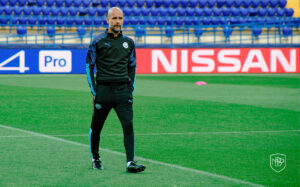Chaos theory and complex adaptive systems theory are two related theories that have a common idea that small variations or interactions can have a large impact on the behaviour of a system.
In the context of a football team, the two theories can be applied to understanding how small interactions between players can directly influence the overall performance of the team, and how the team can adapt and evolve as it interacts with its environment.
Chaos theory in particular focuses on understanding non-linear dynamical systems, and how small variations within the initial conditions can have large effects on the final outcome of the system.
When we talk about a football team in competition, this could translate into how small differences in the way players interact with each other, the decisions they make in each situation, how the opponent acts, the coach’s interventions, and every little detail that can emerge, can influence the ultimate result of a match.
Authors such as Keith Sawyer describes it perfectly in his book ‘Group Genius: The Creative Power of Collaboration’ (2007), stating how working teams can be understood as complex adaptive systems. In them, small interactions between team members can have a big impact on the outcome.
On the other hand, the theory of complex adaptive systems focuses on the idea that dynamic systems have the ability to self-organise and adapt to changes in the environment.
In a football team, this could translate into how the team adapts to the conditions on the pitch, the strategy of the opponent and the way players interact with each other during the game, always based on their knowledge, previous experiences, and capabilities of the individual, and therefore, of the collective.
In his book ‘Hidden Order: How Adaptation Builds Complexity’ (1995), John Holland explains how complex adaptive systems have the capacity to learn, adapt and evolve as they interact with their environment.
In the nature of the game, the football player continually adjusts their behaviour so that it is appropriate in relation to that of their teammates and opponents, thus producing interactions that can create new game situations (Ardá and Casal, 2003).
In conclusion, chaos theory and adaptive complex systems theory are two related theories that deserve to be studied in depth in order to understand the behaviour of a football team.
Understanding these theories can help coaches and players understand how small interactions can influence the overall performance of the team, and how the team can adapt and evolve as it interacts with its environment.








